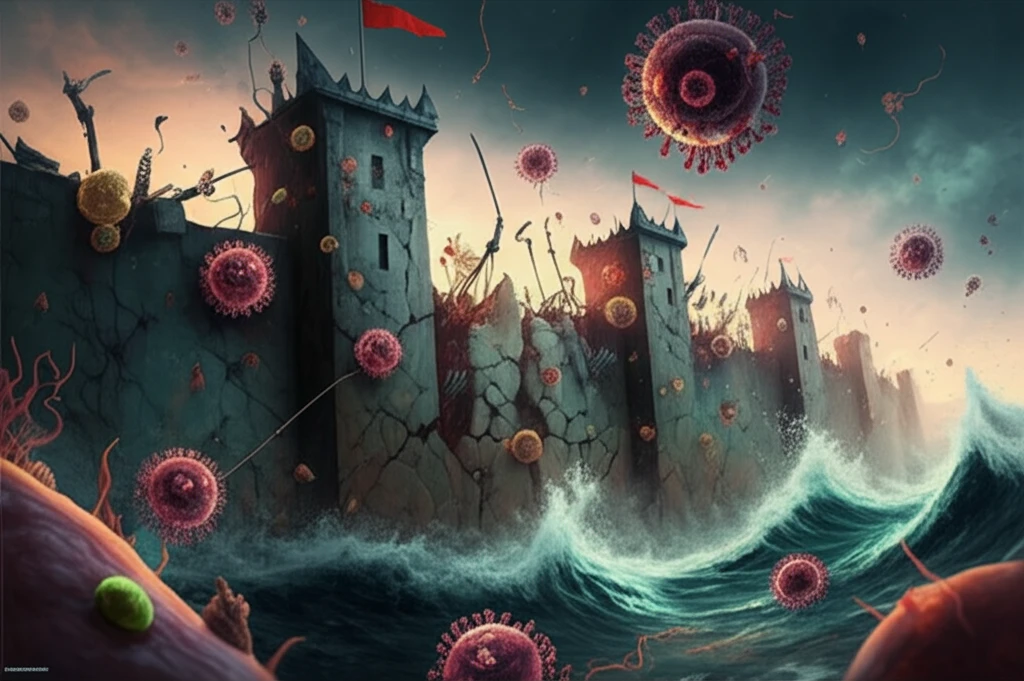
Cracking the Code: Can We Turn Cancer's Own Defenses Against It?
"Groundbreaking Research Reveals How Blocking a Specific Process Can Restore Sensitivity to Chemotherapy in Resistant Cancer Cells."
For years, the battle against cancer has been fraught with challenges, one of the most daunting being the development of drug resistance. Cancer cells, incredibly adaptable, often find ways to evade the effects of chemotherapy, rendering treatments ineffective and leading to disease recurrence. Imagine cancer cells as fortresses, each finding unique ways to shield itself from attack. This adaptation is a critical area of study, driving researchers to seek innovative strategies to overcome this resistance.
Doxorubicin (DOX), a widely used chemotherapy drug, faces this very problem. While initially effective in treating various cancers, including leukemia, its long-term success is often limited by the emergence of resistance. Scientists are now exploring how seemingly unrelated factors, like viral infections, might play a surprising role in this resistance. Specifically, the human cytomegalovirus (HCMV), a common virus often found in tumors, has been implicated in suppressing the natural cell death pathways that chemotherapy relies on. This connection opens up a whole new avenue for understanding and combating cancer's defenses.
Now, a fascinating study is shedding light on a potential solution. Researchers have discovered that by inhibiting a specific process called polyamine catabolism, they can restore the sensitivity of drug-resistant leukemia cells to doxorubicin. This breakthrough hinges on understanding the intricate relationship between HCMV infection, cellular metabolism, and the delicate balance of proteins that govern cell survival and death. This article explores the details of this research, translating complex scientific findings into accessible insights for those seeking to understand the latest advancements in cancer treatment.
HCMV: The Unsuspecting Accomplice in Cancer Drug Resistance

Human cytomegalovirus (HCMV) is a widespread virus that often remains dormant in the body. However, studies have revealed its presence in various tumors, suggesting a potential link to cancer development and progression. Researchers have found that HCMV can interfere with the normal cellular processes that trigger cell death in response to chemotherapy. This interference essentially provides cancer cells with a survival advantage, making them less susceptible to drugs like doxorubicin. Think of it as HCMV quietly disabling the self-destruct mechanism that chemotherapy tries to activate.
- TAp73: Acts as a tumor suppressor, promoting cell death and preventing uncontrolled growth.
- ΔNp73: Exhibits pro-oncogenic effects, supporting cancer cell survival and proliferation.
A Promising Path Forward: Blocking Polyamine Catabolism
The research highlights a promising strategy for overcoming drug resistance in cancer cells. By inhibiting polyamine catabolism, a metabolic process that supports cancer cell survival, researchers were able to restore the sensitivity of leukemia cells to doxorubicin. Specifically, the inhibitor MDL72.527 effectively reversed the HCMV-induced shift in p73 isoforms, reducing the levels of ΔNp73 and promoting cell death. This finding suggests that targeting polyamine catabolism could be a valuable approach for enhancing the effectiveness of chemotherapy in patients with HCMV-associated cancers.
